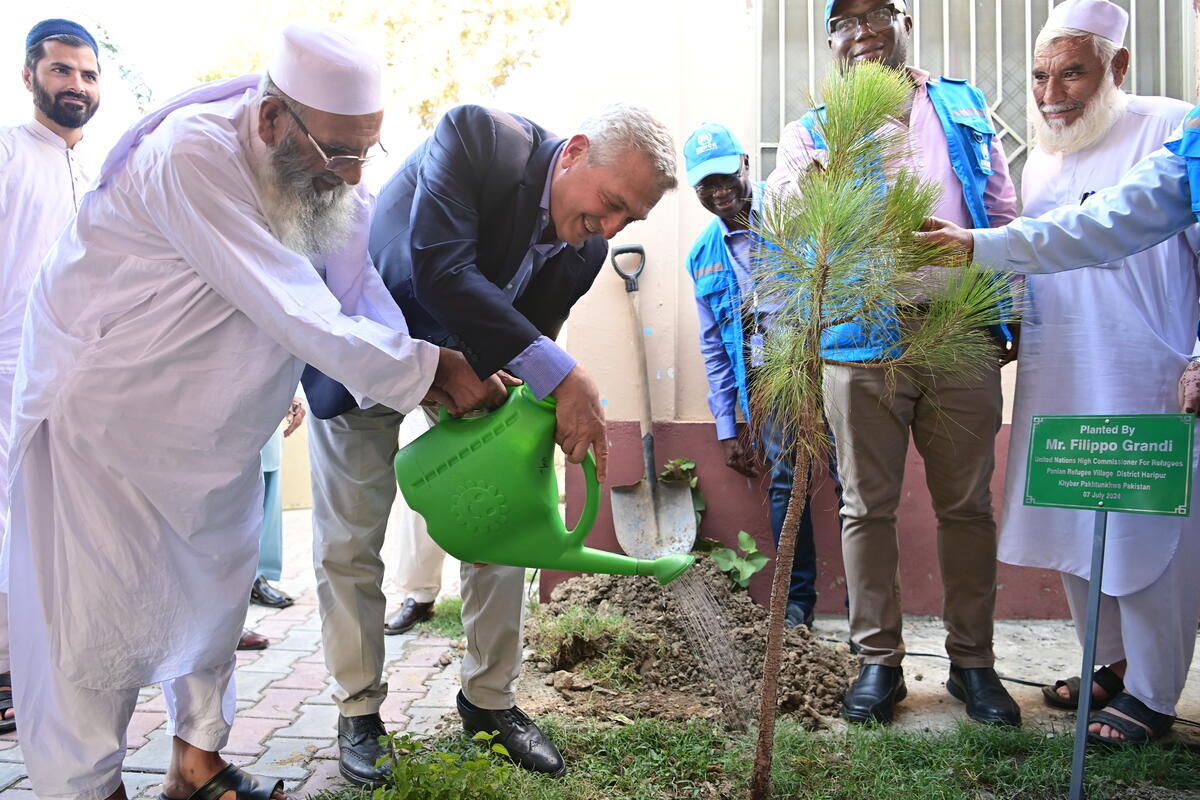In Iran, UNHCR project provides comfort to troubled refugee youth
In Iran, UNHCR project provides comfort to troubled refugee youth

QOM, Iran, February 27 (UNHCR) - Before she can go to school, Narges must go to work. The quiet 15 year-old Afghan refugee is employed as a domestic cleaner to help support her mother, who was abandoned by her abusive, drug-addicted husband four years ago.
That she now spends more time in the classroom than cleaning is, for Narges, a reason for optimism. Having been assisted by a UNHCR-funded programme for street children and child labourers, Narges now hopes that she will be able to finish high school and attend university.
"I work in people's homes," she said. "I can only bear it because I know I will be going to school after."
Her parents' divorce left the family homeless and destitute. She, her mother and younger brother were forced to take shelter in a farm. To survive, mother and daughter found work, cleaning homes.
Her mother feared that Narges might turn to drugs or run away and so was quick to respond to an offer of help when she was approached by the charitable organization Hamian-e-Rah-e-Zendegi (Supporters of the Direction in Life) which is implementing a UNHCR project to protecting street and working children, many of them Afghan refugees, in the city of Qom. Through the program Narges took part in individual and group psycho-social counselling and the family was provided with some financial assistance.
"I feel much better now," she said softly. "The facilitators of the project encouraged my mother not to send me to work that often and let me concentrate more on my studies. They taught me how to keep a balance between study and work and how to better deal with the problems I face. The things that I faced when working..." she recounted, unable to finish the sentence.
As part of the UNHCR project, the Iranian NGO provides psycho-social counselling as well as life skills and, in some cases, financial assistance to vulnerable children. The children are identified with the assistance of the Afghan refugee community and also the government's State Welfare Organization, which is UNHCR's direct implementing partner in the project.
"Afghans, especially Afghan women of all ages, have shown a lot of interest in this project and they have been very welcoming towards it," said Akram Sharifi, one of the project's organizers. "Initially we were using methods such as giving the students prizes; stationary, books, etc, in order to encourage them to participate in our classes, but now they are the ones asking us to hold additional sessions."
Gholam is another 15 year-old who was helped by the project. He lost his father before being born and his mother during birth. He was adopted by his uncle who raised him as one of his own children. Despite being brought up by a caring uncle and amongst loving sisters, Gholam, who started work at the age of 12, lacked self confidence to the extent that he found it difficult to relate to others.
"I was so shy that during my counseling session I was told to write the two words, 'I can' many times a day and to repeat it whenever I felt uneasy."
Bernard Doyle, UNHCR's Representative in Iran said, "Many Afghan refugees are living in poor economic conditions and so often the whole family including children have to work. These children grow up fast on the streets and are often exposed to risks such as abuse, poor health, and mental problems. Programmes such as the one in Qom are designed to improve the situation of these children and to prevent possible exploitation."
The project for street children enabled more than 40 young people to better cope with tragic and often traumatic circumstances. UNHCR plans to sponsor similar projects in Iran in 2012.
by Dina Faramarzi in Qom, Iran









